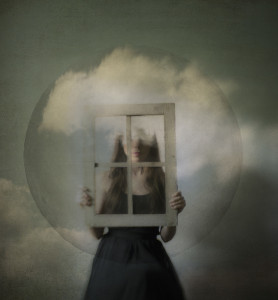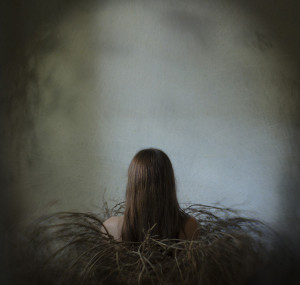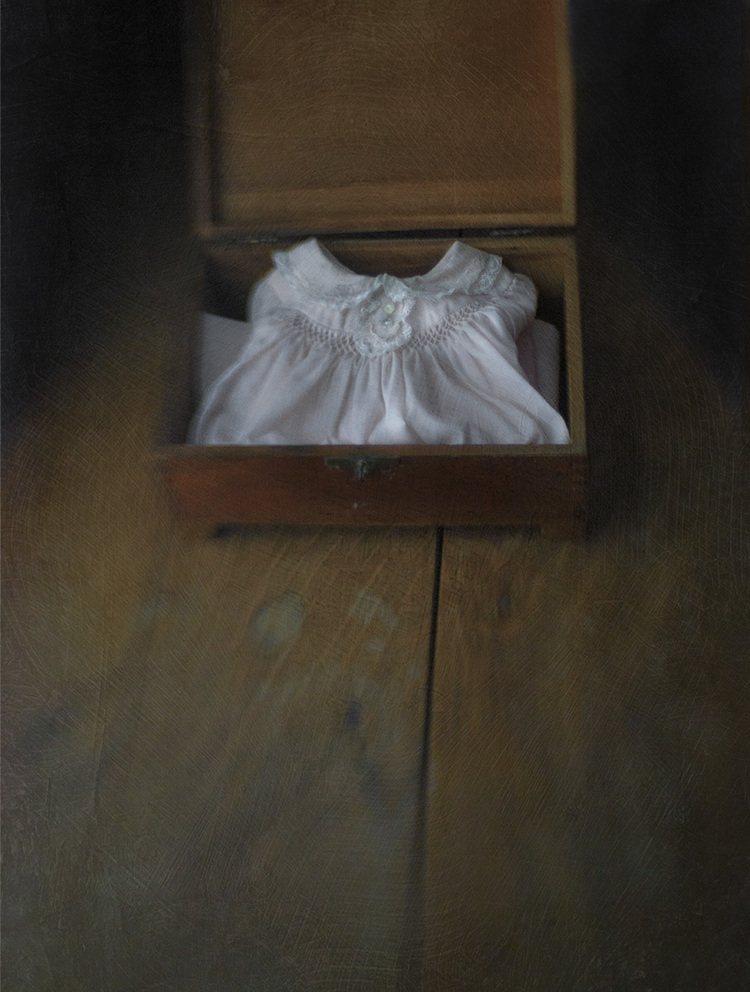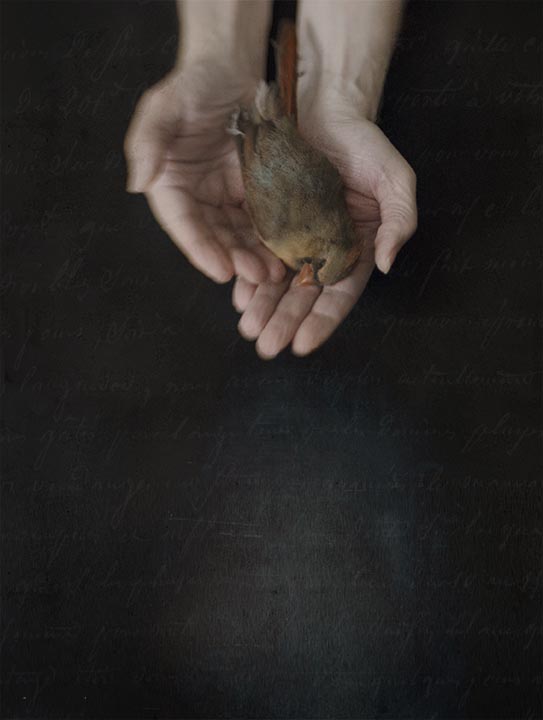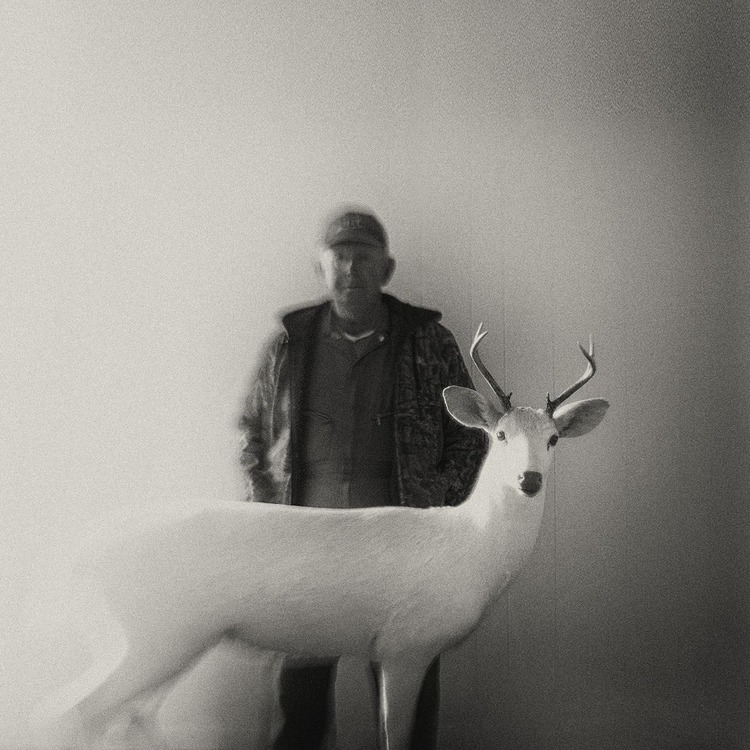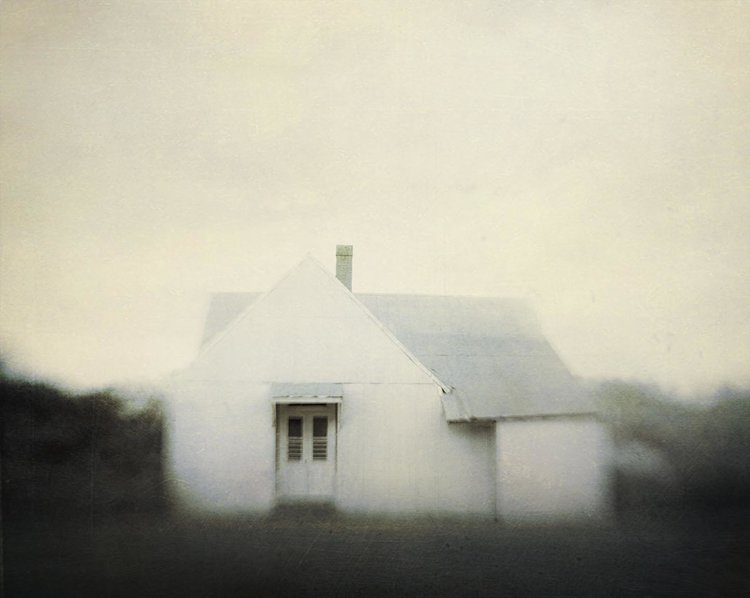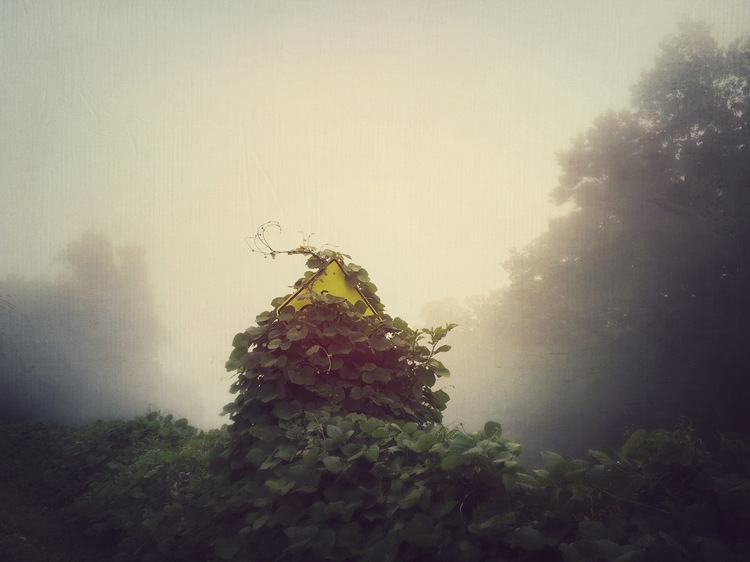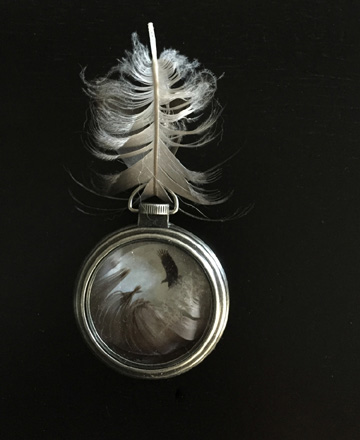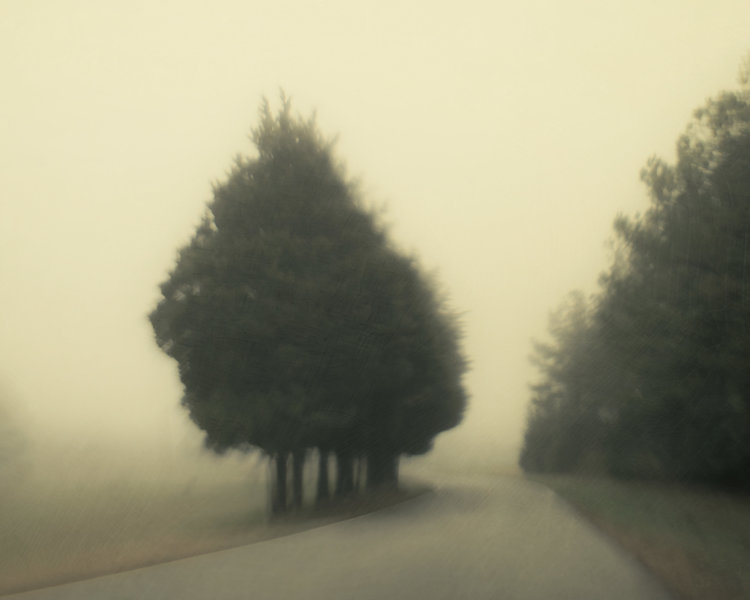
“Confined to Memory” by Dawn Surratt
Anna suggested it. In theory they took turns, but in fact it was usually Anna.
“O sink hernieder nacht der liebe.” Descend upon us night of passion. From Tristan and Isolde. The fury it caused when it first played, the rage at Wagner for composing it. Erik admired Wagner. Maybe it was his Teutonic roots. Erik the Red, Anna had called him the night they met, at that party after Carmen, even reached up and flicked his hair where it hung down over his forehead. Erik the Receding now, more like. Tristan had an incompleteness he could relate to, the way it left you hanging, waiting for something that never fully arrives.
And it was in his range, though that high A might give him trouble. Anna would sing it beautifully, of course. Though not the way she once did.
Erik sat at the piano, a baby grand that took up half their living room, fingers hovering just above the keys. “Don’t be all warbly,” she said, smiling to let him know she meant it in a good-natured way, and he smiled back to reassure her that it didn’t hurt. That reminder. Always that reminder of what he wasn’t. Gieb vergessen dass ich lebe, the song went. Let us live our life forgetting. If only it were that easy.
But he knew what she meant. That first E-flat, in the second line, held for three beats: nacht der lie (one, two, three) – be. Like starting too slow on a bike, wobbling a little before you get your balance. It was right where she came in, echoing his phrase, so he hoped she didn’t notice, but he saw it in something she did with her eyebrows.
Anna had been a brilliant Carmen that night all those years ago, performing with raw ferocity, The Italian equally brilliant as Don José, their chemistry intoxicating. Erik was there because a college friend was on the opera board and invited him, to the performance and the after-party for donors paying insane amounts to breathe the same air she breathed, even as her beauty took their breath away. Their wives expected The Italian and tried not to look devastated when he didn’t show. It was said he had other plans. L’amour est un oiseau rebelle, Anna had sung. Love is a rebellious bird.
“Stop,” Anna said at the point just before, one after the other, they sang their way into the night of love. Eric’s fingers paused above the keys. “Let’s go over that part again.”
~
She had been the rising star. Only twenty-four, young—some thought too young—for the roles they were giving her, with extraordinary range and versatility, a voice that could be liquid and soothing or could explode with fire.
Anna Colston. The Anna Colston. In her silver dress with the plunging neckline, reaching up with a pale arm to touch his hair, the backs of her slender fingers brushing lightly against his forehead. Her golden hair tumbling in waves, blue eyes sparkling, mouth wide with mirth, enjoying the effect she was having on him. “Erik the Red,” she said. “Such a pleasure.” That way South Africans have of making pleasure sound illicit and thrilling.
~
O sink hernieder nacht der liebe, Erik sang, his voice rising with more confidence this time, no wobble on the E-flat. She followed him, traces of nectar still there in her voice after all this time, but now it was as if it had been aged in oak barrels and become a deep red wine, full-bodied, maybe a little sediment at the bottom.
“Shit!” she said, slamming her hand on the piano. Mad at herself now, something off in her voice that he couldn’t detect. “Again.”
~
“Call her,” his college friend had urged later that night.
“How?” Erik asked, part of him aching to see her again, part of him hoping to discover the impossibility of that, like standing on a high ledge too narrow to support him, but with a view too captivating to resist. A high-school music teacher didn’t just call a woman destined to become one of the world’s great sopranos, even if she does flick his hair. “You can’t just call Anna Colston.”
They were sitting in a taxicab outside Erik’s apartment. The friend took a business card from his wallet and wrote something on the back: the name of Anna’s hotel, the number of her room. “She’s only here for three more days,” he said.
He called her the next day to invite her to have dinner with him that night after the performance. “What?” she answered, not “Hello,” sounding distracted, impatient, as if he’d interrupted something. Then, “Who are you again?” And he felt like a fool, his words tripping over themselves as he tried to explain. “Oh!” she said, interrupting him and laughing. “Erik the Red.” To his astonishment, she accepted.
~
He played the section over. It was a simple phrase, in a part where they traded solos. Erik thought she sounded perfect, but he didn’t say so because he knew it would make things worse. She was frustrated by what eluded her, irritated that he couldn’t tell the difference.
Vas vir dachten, vas uns dauchte. All that daunted, all that haunted.
~
That second night he paid for the best seat he could afford and again watched Anna’s Carmen steal the heart of The Italian’s Don José and then break it, discarding him for the bullfighter, the act of betrayal that would destroy her. As the audience rose in gratitude, Erik worried about how he could possibly satisfy a dinner companion like Anna Colston.
They went to a Spanish restaurant he knew in a cobblestone alley where she surprised him by wanting to talk about him. He told her about the cello competitions he had won as a boy, the scholarship to Oberlin, the doors to a performance career that refused to open for him, and his decision to teach instead. He told her how he used to fill in occasionally with the symphony when a cellist was sick or away. He told her about the baroque quartet he played with, the recording they planned to make. “And my father was a teacher,” he said, as if that explained something.
She said, “It must be so rewarding to work with young people, though.” That one word, sharp as piano wire, underscoring what separated them: Though.
Erik took a sip of the Rioja he had ordered that cost nearly what he made in a week, hoping it would steady him. “With your talent, I imagine you were spared the political games.”
“My first role,” Anna said between big bites of paella, “I got by fucking the conductor.” She said it brightly, matter-of-factly, as if she were commenting on the previous day’s good weather, her blue eyes watching for his reaction.
An older couple approached their table, the woman gushing over Anna’s performance that evening, the man standing back. They asked for her autograph, and Anna obliged, writing it on the playbill the man took from his overcoat pocket. The couple looked awkwardly at Erik, wondering what role he played, this lesser star dimmed by the supernova of Anna Colston. The man, a short man with wispy gray hair, held the playbill and pen out to him. Erik looked at Anna, who laughed into the back of her hand. Erik took the pen and wrote in a bold cursive so Anna could see: Erik the Red.
~
Tristan was built of sounds that had no business being with each other, with harmonies dissolving into dissonance, intrusions thwarting the musical release. It was music that helped shape the surrealism of Dali and the paranoia of Hitchcock.
~
He drove her back to her hotel and wasn’t sure he heard correctly when she invited him up. In bed with her that night he was nervous, hesitant, intimidated by her experience. It was like holding a Casals cello—you wanted to play it at the standards it deserved, but feared doing so was beyond your reach. He had to teach in the morning, and left her room wondering if this was another audition he had failed.
But she would call whenever she played nearby—La Boheme, Rigoletto, Otello—and he would go to see her, and they would go out somewhere after, or go straight to her hotel room.
Months later, in Philadelphia, during the last performance of Lucia di Lammermoor, at the end of “Il Dolce Suono,” one of opera’s most demanding arias, from his seat Erik heard passages that were meant to soar but that failed to, and saw on Anna’s face not just the grief of Lucia, but also a fear that was Anna’s alone. Something was wrong. Backstage he found her in tears. She was too young, her voice too immature, the music had pushed her too far. A crowd had gathered around her: at age twenty-four Anna Colston’s vocal cords had hemorrhaged.
The Italian stood apart from the others talking to the young mezzo-soprano who played Alisa, Lucia’s handmaid.
They agreed that after surgery she would move in with him so he could help with the recovery. For over a week Anna didn’t speak at all, and for weeks after that she spoke only when necessary, and not much above a whisper. No singing, no shouting, no vocal outlet for what she felt. Things needed time to heal. She created a language on his piano, a modest upright back then, letting the emotion held in music reflect her moods, pounding the flat of her hand on the lower keys when she got frustrated.
He cooked for her, cared for her, consoled, encouraged. His students looked at him differently as word spread that a famous opera star lived with their teacher. Mr. Zimmerman. With Anna Colston. With Anna Colston. He slept on the couch though, because she worried that if they made love she might cry out.
One day Erik came home from teaching to find her at the piano, her eyes red from crying. A newspaper lay folded there: Don Giovanni, at the Met, The Italian in the title role.
They took the train to New York, Anna staring out the window the whole way.
The Italian gave a stellar performance, seducing the audience as completely as his character seduced his lovers. At the end people stood and shouted his praises.
Erik leaned down to her. “Go see him,” he said. “I’ll wait for you outside.” But when the curtain drew shut, she hooked her arm through his and steered them toward the exit. That night in an Upper East Side hotel room they made love for the first time in months.
She started back with baby steps, the two of them singing together in his apartment. Erik surprised her with how well he could sing, his voice somewhere between a baritone and a tenor but passable with either. As her strength and confidence returned, Anna began taking small roles with lesser operas, like a big-league pitcher rehabbing his arm in Tulsa, and they were all too glad to have her because of what her name meant at the box office. Audiences loved her, hearing greatness because that’s what they wanted to hear. Critics were more guarded. “A brave effort by Anna Colston as she attempts a comeback,” wrote one, young and trying to make a name for himself. “This may not be the Anna Colston we once knew, but what her voice may have lost in range it makes up for with depth and weight.”
“I’m mezzo,” she said bitterly after reading that review, as if the word were Italian for failure. “I’m fucking mezzo.”
“Give it time,” Erik said.
“Witches and bitches. From here on out, that’s what I play. Witches and bitches.”
The call came: the Seattle Opera wanted her to play Gertrude, shallow, adulterous Gertrude. “Hamlet’s mother?” Erik heard her say into the phone. “I’m twenty-five years old and you want me to play Hamlet’s mother?” She was assured that it would be fine, that their costume and makeup people were excellent. “They just want me to sell tickets,” Anna said after hanging up, but she took it.
He went with her. They rented an apartment downtown and he would sit watching in the empty opera house as she rehearsed. In the middle of a scene two days before opening everything stopped abruptly, the young girl playing Ophélie sobbing, inconsolable, others in tears with shocked looks. “What’s going on?” Anna asked someone.
The Italian had flown his plane into the side of a mountain near Chamonix.
Anna played a convincing but uninspired Gertrude, and never sang professionally again.
“I can’t live in his shadow,” Erik said to her when she brought up the topic of marriage.
A thin smile pulled at her lips. “We all live in shadows,” she said.
~
With tonal harmony notes and chords form in ways the ear and brain expect. Many of the world’s finest classical works fall into this category, with Bach in particular pushing the form to its artistic limits. In Tristan, Wagner launched an assault on tonality, and nowhere more noticeably than with what came to be called the Tristan chord, made up of the notes F, B, D-sharp, and G-sharp, which in relation to the key and the notes around it becomes jarring, disorienting, unresolved. Wagner paved the way for a modernist disintegration of tonality—for Debussy, Bartòk, Stravinsky, for music that was disturbing, daring, and occasionally scandalous. “Rite of Spring” provoked a riot when it premiered in Paris. It was music that fooled the ear, deceived the brain, yet for those who gave it a chance, it would somehow manage to create its own kind of balance, built upon imperfection and vulnerability and the unexpected.
Des Tages Dräuen nun trotzten wir so? Erik sang. Have we day’s menaces thus defied? Then she followed him, and they sang together of unmeasured realms of ecstatic dreams, of endless self-knowing, of love’s utmost joy. He sang confidently, as well as he could, and when they finished he looked at her for affirmation. But she was off somewhere, which could have been Sydney or Vienna or Moscow or her hospital bed or their bed or another bed or any aria she or anyone else had ever sung.
“Again,” she said, and he turned back the pages and started to play.
Richard Bader is a former a restaurant cook, whitewater rafting guide, and college communications director who now earns his living working as a writer and consultant for nonprofit organizations. He also sings in a church choir, though nowhere near as well as the characters in this story. His fiction has been published by the Burningword Literary Journal, SN Review, and National Public Radio. This is his third story for r.kv.r.y.
Read more about this story here.


